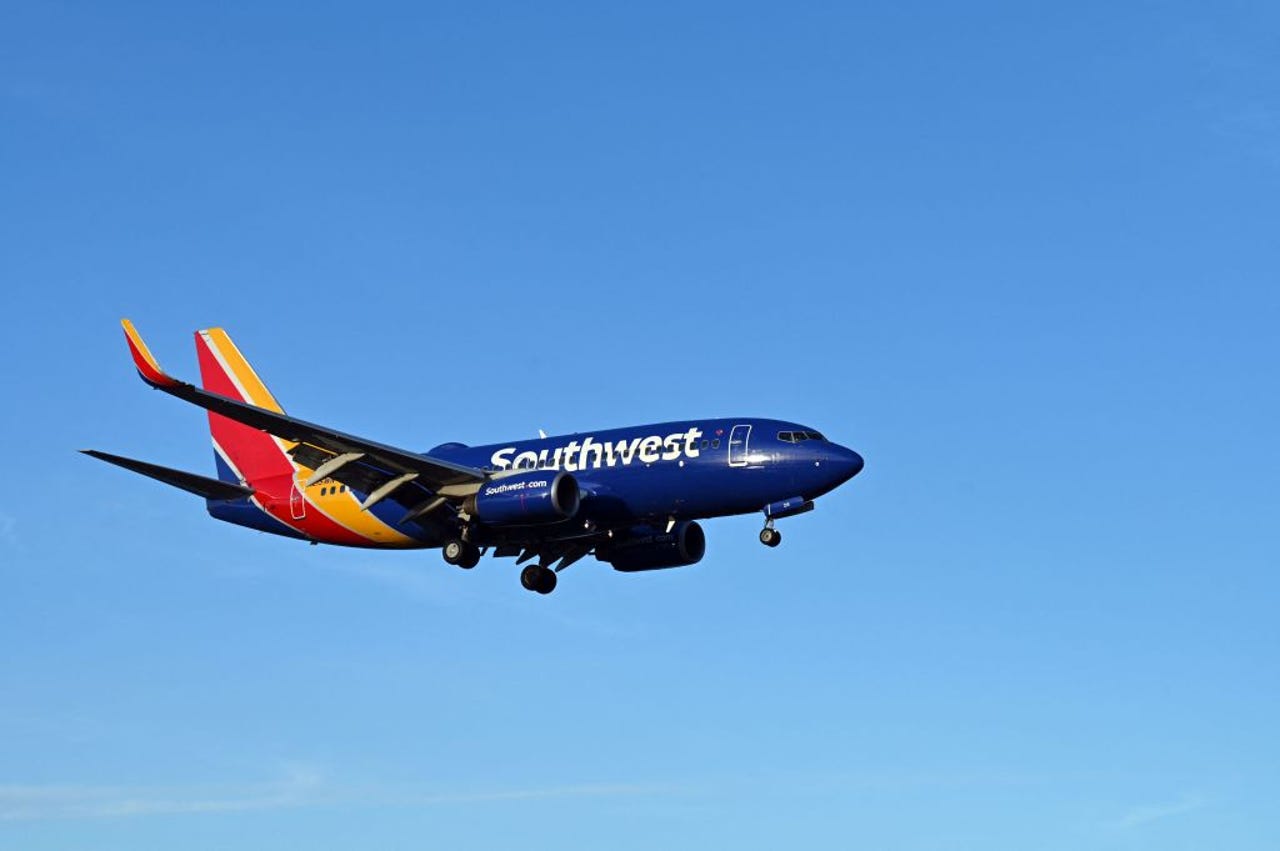































 Daniel Slim / Getty
Daniel Slim / Getty You don't think about it because you don't want to think about it.
When you get on a plane, you might get lucky and sneak a peek into the cockpit.
You're more interested, though, in getting to your seat and hoping you're not next to some malodorous individual who'll be spreading out once airborne a spreadsheet on their laptop.
Airline business credit cards allow you to earn free miles from travel and everyday purchases.
Read nowPerhaps, though, if you're flying Southwest Airlines, you should try and look into your pilots' eyes and wonder how they're feeling.
This thought comes not from me. Not directly, anyway. It comes from Southwest's own pilots. This week, their union wrote to Southwest's new CEO Robert Jordan and offered some disturbing thoughts.
"Fatigue, both acute and cumulative, has become Southwest Airlines' number-one safety threat," the union said.
Just that sentence might make one or two customers wonder. The union did, however, add more substance.
Also: Southwest Airlines had a great new idea for customers (then it ruined things)
"Over the last 12 months, our Pilots have filed an ever-increasing number of ASAP [Aviation Safety Action Program] reports showing errors that can be directly correlated to fatigue," said the letter.
Which doesn't sound entirely reassuring.
The union insists that the problems that existed last year during the pandemic are really no better this year. It suggests that for this year, there have been 350% more fatigue reports than in March 2019.
The pilots take aim at Southwest's operational systems.
"Continued and deliberate deficiencies in the management of our network and pilot scheduling have destroyed our efficiency, and now even safety is becoming untenable," they say.
When it comes to efficiency, the pilots recently gave this example: "AsSWA experiences disruptions more often, deadheads [pilots being repositioned] from reassignments will continue to hinder operational recovery due to the lack of modernizing the tools needed to utilize Pilots online and at outstations efficiently."
Recently, CEO Jordan himself admitted that the airline's internal technological systems weren't of a stellar nature. Yet it's precisely at times of stress that you need those systems to be at their most efficient.
Yes, Southwest has been hampered by bad weather. And for its part, the airline insists it's made changes to its schedules last November, which caused pilot fatigue reports to diminish.
But there's another, in its way, equally troubling aspect to all this, one that has other potential long-term consequences.
As Bloombergreported, Southwest isn't finding more pilots because it can't find more pilot instructors. In an economy where many are being choosy about where and when they work, hiring becomes a highly competitive and frustrating activity.
Some might say airlines deserve it, as they fired so many people during the recession. Others might add that Southwest's pilots aren't alone in presenting such complaints.
American Airlines pilots have gone so far as to make ads showing how badly they say they're being treated.
Also: United Airlines just made a huge announcement that'll drive customers crazy
Coincidentally, both groups of pilots are currently in negotiations over a new contract.
Airlines are lauding the prospect of an extremely busy summer, of people desperately wanting to travel because they haven't done much over the last two years. But how can customers expect operations to be reliable?
It's the safety warning, though, that'll trouble customers the most.
Perhaps it's just a scare tactic. The creation of fear so often brings results.
Some customers might, though, be tempted to ask their pilots if they've had enough sleep the night before.
Just, you know, in case.
 Tags chauds:
affaires
Tags chauds:
affaires